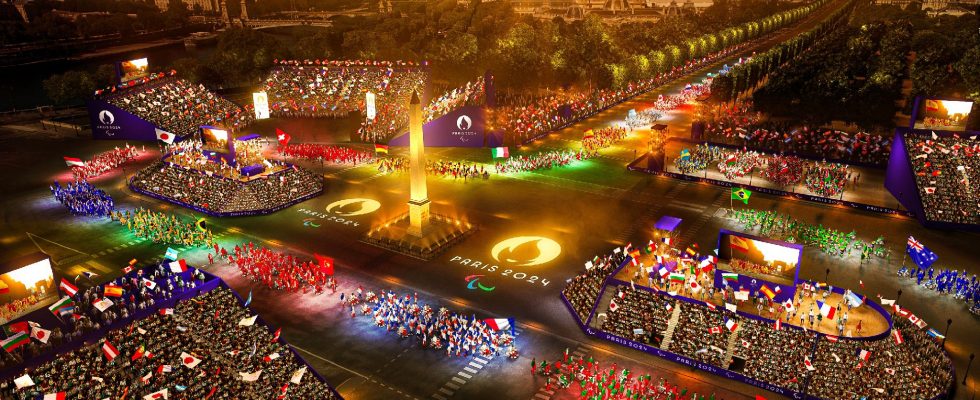The organization in France of the Olympic and Paralympic Games in 2024 will cause an exceptional influx of populations on French soil – 10,500 Olympic athletes, 4,350 Paralympic athletes, 45,000 volunteers, 12 million spectators and 25,000 journalists. No less than “261 risks” are associated with this event, according to the very secret “national risk analysis” of the French authorities, a classified document but cited by the Court of Auditors in its report of June 2023. Beyond the threats of attacks, crowd movements, cyberattacks (like during the Tokyo Olympics), actions of unbalanced people, there is another danger that is more complex to identify: the health risk.
Everything is planned for the athletes: the Assistance publique-hôpitaux de Paris (AP-HP) will be responsible for a “polyclinic” reserved for athletes in the heart of the Olympic village for 700 consultations per day, with two MRIs operating twenty- four hours a day and a pharmacy branch, thanks to 200 qualified French volunteers and 30 international volunteers. Three Ile-de-France hospitals will also be references for “public CIOs” (i.e. outside the general public). This was a request from the Law Commission of the National Assembly (report of March 9, 2023), which insisted that the Seine-Saint-Denis department not suffer “any overload”, in view of the medical desertification in this territory.
But gray areas remain. If the health authorities do not plan more than 150 additional visits per day to the AP-HP emergency rooms, we do not know what is planned at this stage for foreign people not covered by the permanent access to health care. health (Pass) in order to ensure their coverage for certain care such as morning-after contraception or post-exposure treatment to HIV. In terms of infectious diseases, we know that such a mixing of populations in the middle of summer increases the risks tenfold, particularly of food infections and sexually transmitted diseases. At the London Olympics, we observed an increase in consultations in sexual health centers. Added to this are the risks of poisoning during swimming events in river waters, a terrorist biological risk with in particular botulism and anthrax, and a possible resurgence of epidemics (Covid, monkey pox, etc.) which would weigh on a health system already on its knees.
The risk of a dengue epidemic
We can thus envisage problematic scenarios. For example, during the end of summer, the city of Nantes was invaded by tiger mosquitoes which transmit, among other things, dengue and chikungunya. However, Nantes will host the men’s and women’s football events at the Beaujoire stadium in 2024, as well as foreign delegations as part of their preparation. If an infected person arrives from a region where dengue fever is endemic, they could very well be bitten by a tiger mosquito, which would then transmit the virus to other people on French soil.
Are Nantes, like other Olympic cities (Marseille, Lille, Nantes, Bordeaux, etc.) prepared for this risk? It may seem hypothetical, but it is nonetheless completely real: Public Health France recently warned of the “exceptional situation” of indigenous cases of dengue fever transmitted by mosquitoes, which affected 52 people in France last year.
The policy of regional health agencies for vector control appears to be very heterogeneous across the territory. Are hospital services informed and equipped with mosquito nets? In its report of April 3, the Committee for Monitoring and Anticipation of Health Risks (Covars) suggested that public authorities prepare for major international events taking place in mainland France in the context of global warming and population movements exposing them to a resurgence of cases of arboviruses. His proposal: organize “a simulation of the triggering and implementation of an Orsec dengue plan in mainland France, for example by simulating 20 outbreaks and 200 cases in Paca, and 20 outbreaks and 200 cases in Occitanie in 2023, or by anticipating the occurrence of dengue cases during the 2024 Olympic Games, by simulating the occurrence of five outbreaks around five Olympic venues. To our knowledge, none of these simulations have been carried out or considered…
* Gilles Pialoux is an infectious diseases specialist, vice-president of the French Society for the Fight against AIDS (SFLS) and editor-in-chief of HIV.org.
